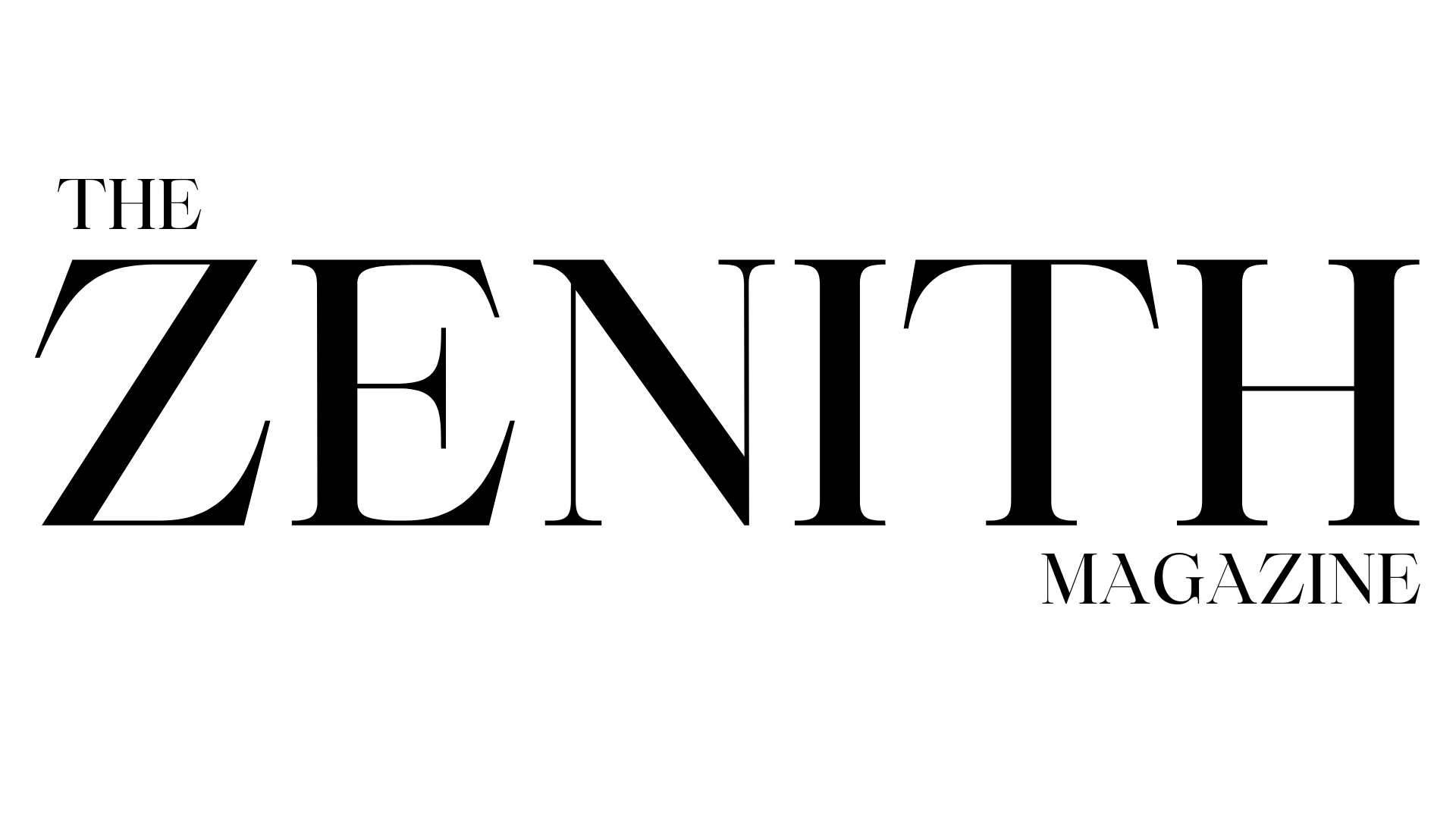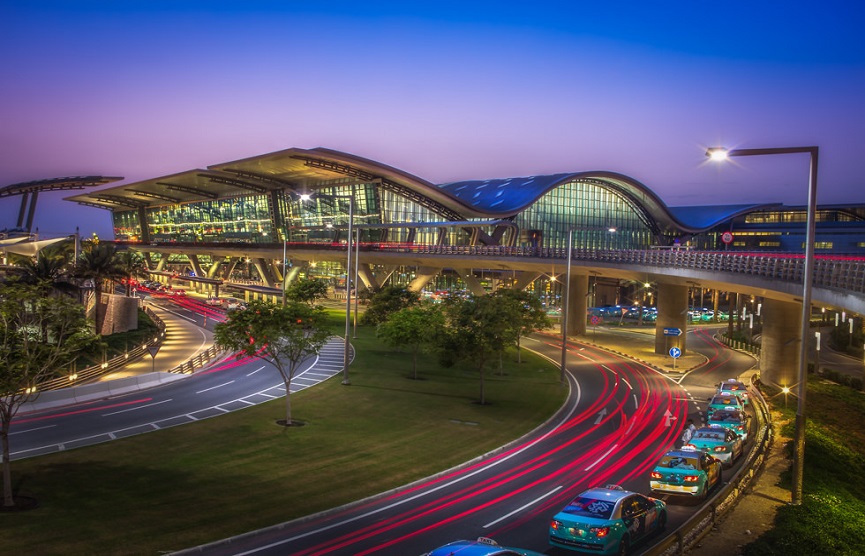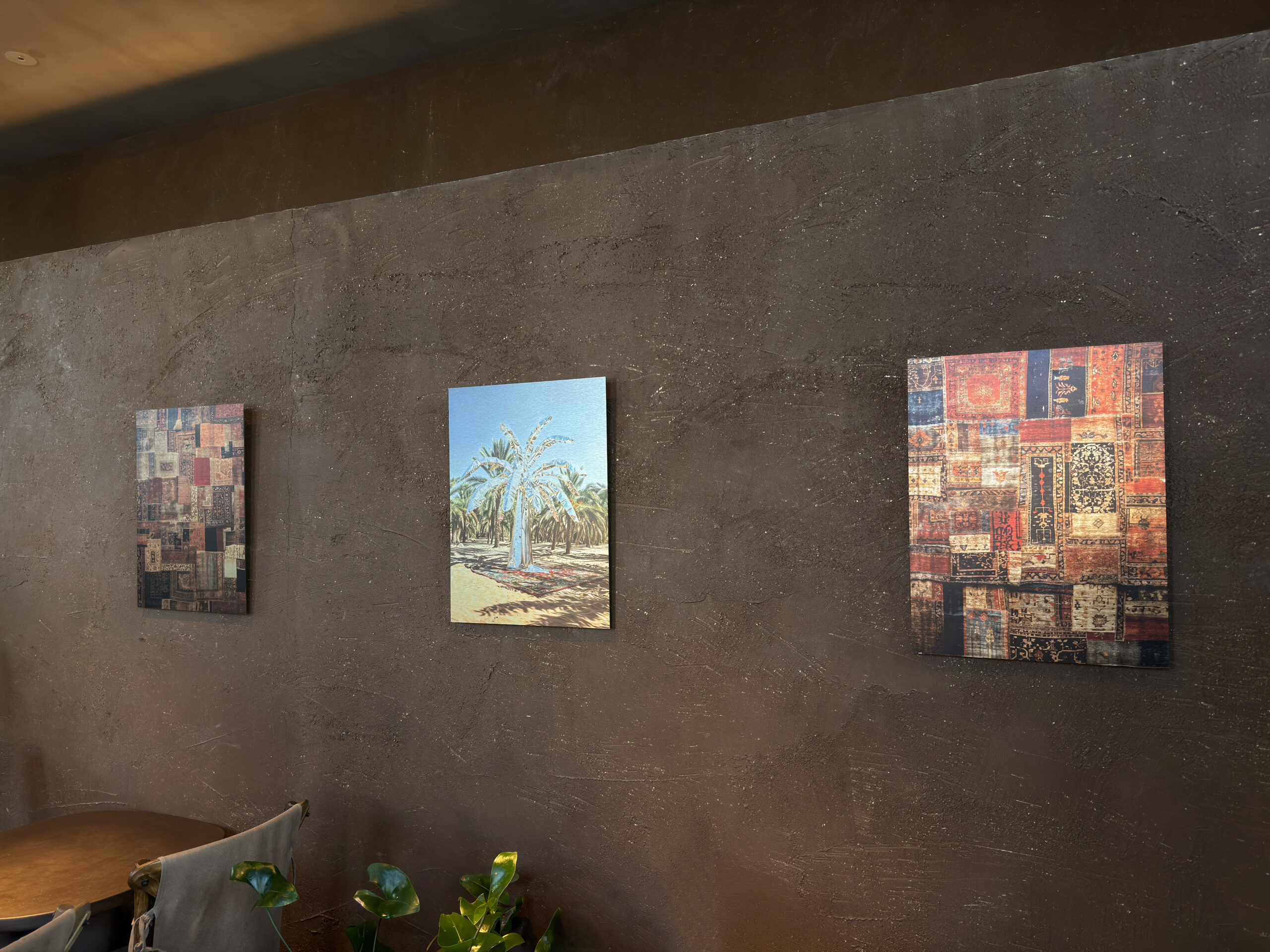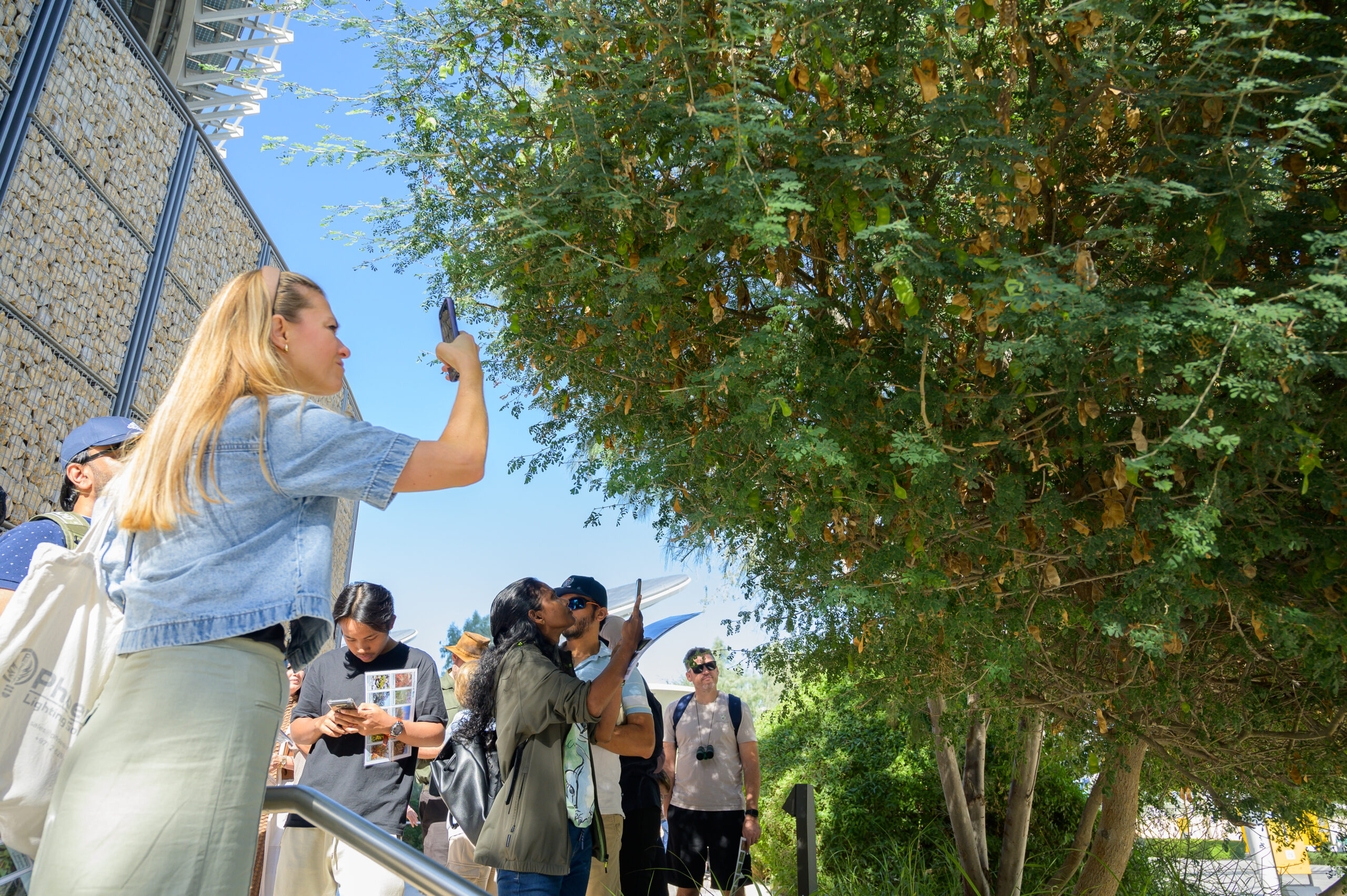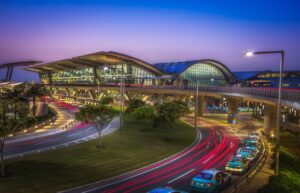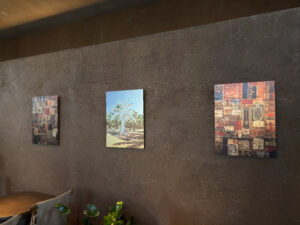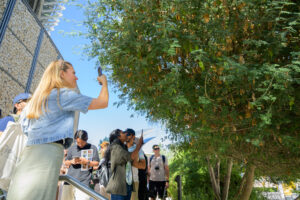Dina Ghandour on the importance of centering the Palestinian Cause
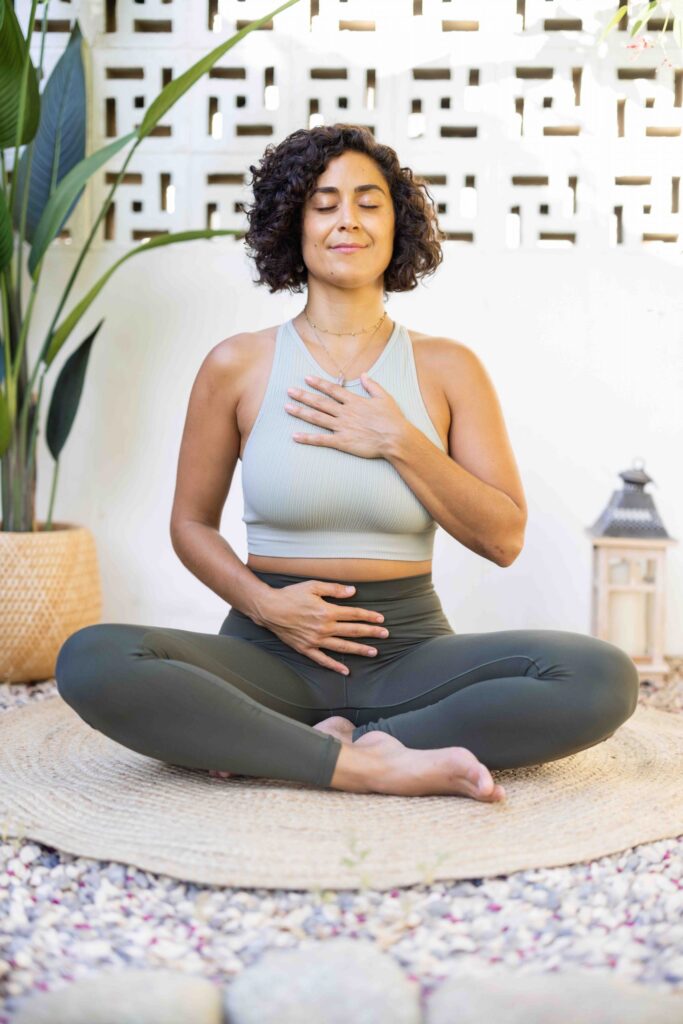
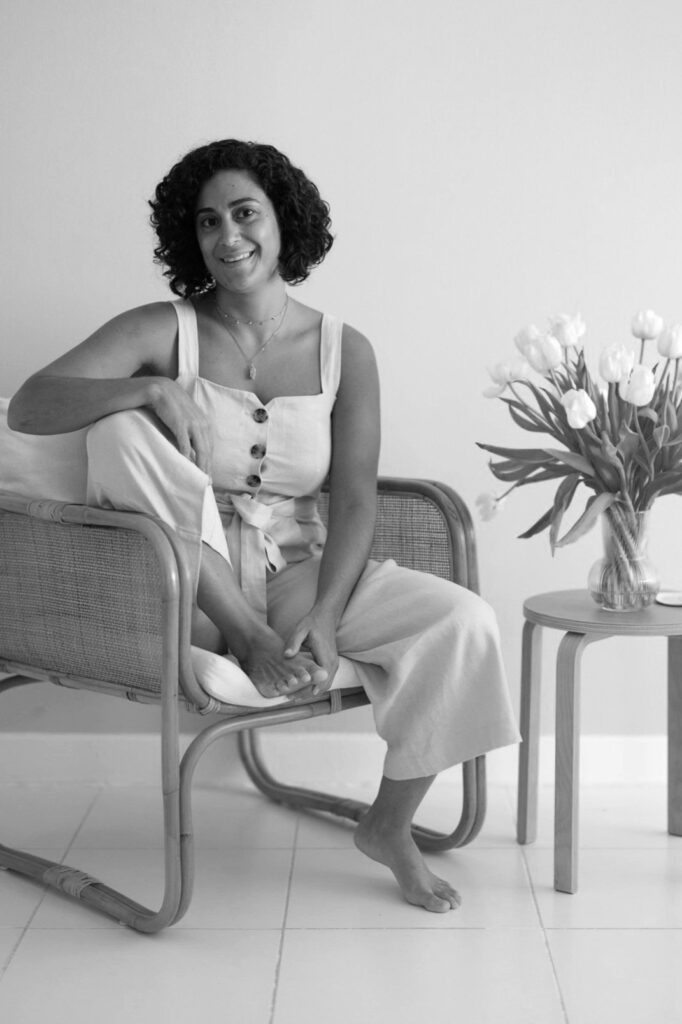
In a world often defined by polarities, where wellness is marketed as comfort and detachment from the pains of the world, Dina Ghandour’s life and work redefines what it means to truly care. She gives new meaning to a life where the goal is “to do more. ”As a wellness practitioner, guide, healer and Palestinian, Dina carries a resolve that extends beyond the bounds of traditional self-care, blending her deep-rooted wellness philosophy with a call to action for Palestinian justice and beyond. Speaking out on the genocide in Palestine, Dina opens up a raw dialogue about resilience in a time of relentless trials, questioning how wellness can remain meaningful amid global injustices.
Dina’s choice to confront oppression comes not only from her identity but from a commitment to collective healing. “We see you, we hear you,” Dina expresses in her advocacy, a phrase that reflects her dedication to centering Palestinian stories in a world that often marginalises them. In conversation with Zenith’s Wellness Contributor Chloe Pierre, Dina shares how the role of wellness has become more than crucial, it’s now intertwined with the emotional and physical survival of a community under siege.
Wellness in Crisis
For Dina, wellness is not merely self-soothing—it is a sanctuary from the brutality her people face, a way to reclaim peace in the midst of loss. “During times of conflict,” Dina says, “wellness practices are what hold us, even as they can feel fragile. They remind us that even while our bodies carry the toll of emotional and physical exhaustion, we can still seek moments of peace.” Through her work, Dina introduces practices that serve not only as a balm for herself but as shared rituals of grounding for fellow advocates, healers, and supporters across communities impacted by oppression.
Dina’s journey into wellness began before her championing of the Palestinian cause took centre stage, but the transformation she inspires today is about healing within conflict—finding breath in spaces that are often suffocating. “It could end today, but it’s lasted longer,” she says, a reflection of the heartbreaking endurance her community has been forced to cultivate.
Dina, how are you feeling currently?
Honestly, I go through waves of feeling a lot and then a sense of normalcy and then something will happen and then we’ll feel a lot and then a sense of normalcy. October 2023, was the straw that broke everyone’s back. Obviously, nothing’s ever been this bad or lasted this long. There’s no rule or guide book.
I think we all keep asking ourselves those questions, “How do we function? How do we cope? How do we continue to be in the world, be in that world? How do we feel? How do we not feel too much so that we’re not totally broken?” There’s just so many different elements to it. And I feel like I definitely haven’t figured it out. I’m definitely taking things one day at a time, one month or time and just trying to be supported by the community as much as possible. That has been the biggest awakening.
Tell us about your community and how you feel you’re being supported by them?
Interestingly enough, I previously associated with more of my like-minded people through the wellness community. That is still true, but when the genocide began, I felt this element stripping away off me. It was an emotional tug seeing the people that I felt were speaking out and the people that weren’t, the people who cared and the people that didn’t. It was glaringly clear, early on, who adopted the attitude of “Well, that’s just something that happens and we don’t need to really pay attention to it until someone tells us to pay attention to it. And even then, like what you said Chloe, “I’ll just put up a black square and then everything’s fine.” So I think the wild thing is the community that has emerged since October 7, which is a completely different group of people than the people I would have typically said I would lean on in tough situations.
There have been a couple of people that I feel, we just deeply connect around this issue and around navigating it, around the emotions, and everything in-between. It’s really sad to have experienced a loss in one sense with a community that I had registered in my mind would be there for me, and then so for that to fall away, but then for this really beautiful, emergence of a new group of people who even though I’ve only known for a year, perhaps compared to other people, it just feels so much stronger, so much more aligned, so much more… alive, even. I feel really grateful for that. It’s brought such beautiful people into my life.
Navigating Compassion Fatigue and Finding Resilience
When asked about how she faces compassion fatigue, Dina speaks with striking honesty. “The emotional toll is profound. It’s not something we can hide from or shut off,” she admits. But rather than allowing the fatigue to overwhelm her, she has found strength in her role as a guide, offering advice to others on how to stay resilient without sacrificing their own well-being. For Dina, self-care in this work is a radical act—one that acknowledges the painful complexities of advocating for the Palestinian cause while nurturing a spirit of continuity and hope.
What advice would you give to other people on staying resilient and compassionate without burning out?
This is most definitely a work in progress for me and I don’t know if I have the answer because I definitely burnt out early on in the journey, often offering space for people and hosting circles and online groups and I would find myself constantly tired or sick. Then having to swing to the other extreme of removing myself from my work, the communities and also the situation itself and taking somewhat of a mental break.
The only thing I’ve learnt, which I can say now in hindsight, I didn’t think it was going to last this long. In hindsight, I was operating on autopilot – it was “go, go go”. I believed and still do, that every day counts because it could possibly all end today.
“It could end today. It could end today. It could end today.”
And then, you step out of this and you realise ”Gosh, this is just ongoing”. So, take breaks from being really immersed and when you feel you have the energy, you feel you want to speak up, create content and bring people together and do things that matter. I really try to lean into friends and resources off of each other. The ones where, with consent, I ask “Can I just call you and can we just have a cry or can we just have a restful session Together?”
The becoming numb part is the trickiest part. I think the compassion fatigue isn’t as much an issue as I feel, being inundated with so many images and so much information and so much horror that you’re constantly being shocked and then a phase of being desensitised. This is something we talk about often in the wellness support group that I created – how can we use the tools that we’ve learned even here in this space?
I guess it’s different for everybody, but coming back to something whether that be spirit, God or nature, allows you to find anchoring and necessary rooting back in your own existence and your own aliveness. I see a lot of Palestinians that are in Palestine, in Gaza, who have such a deep rooted connection to their culture and their faith in the face of adversity. If that’s what keeps them going, it’s something I practise also. I think it’s about trying to find that.
Does being active and visible for the Palestinian cause on social media equate to doing the right thing?
Hmm. I think yes and no. I definitely don’t think it defines whether you’re a good person or doing the right thing. It is where a lot of people get their information from and where many will potentially be exposed to what’s happening, so it’s another great tool.
Palestinian people themselves are going to great lengths to share videos of what is happening, probably thinking, maybe this video, maybe this photo, maybe this moment, is the moment that’s going to free us.
For me, the next question and action to take, is how can we amplify these voices? This person is trying to get us to care and trying to get us to see and trying to get us to listen. When he or she should be crying, mourning, or in community and trying to heal, this is what they’re asking of us. They’re very clearly asking us to step up, show up and to bear witness, and to amplify their voices. For me, this is my way of honouring them and to be their hope.
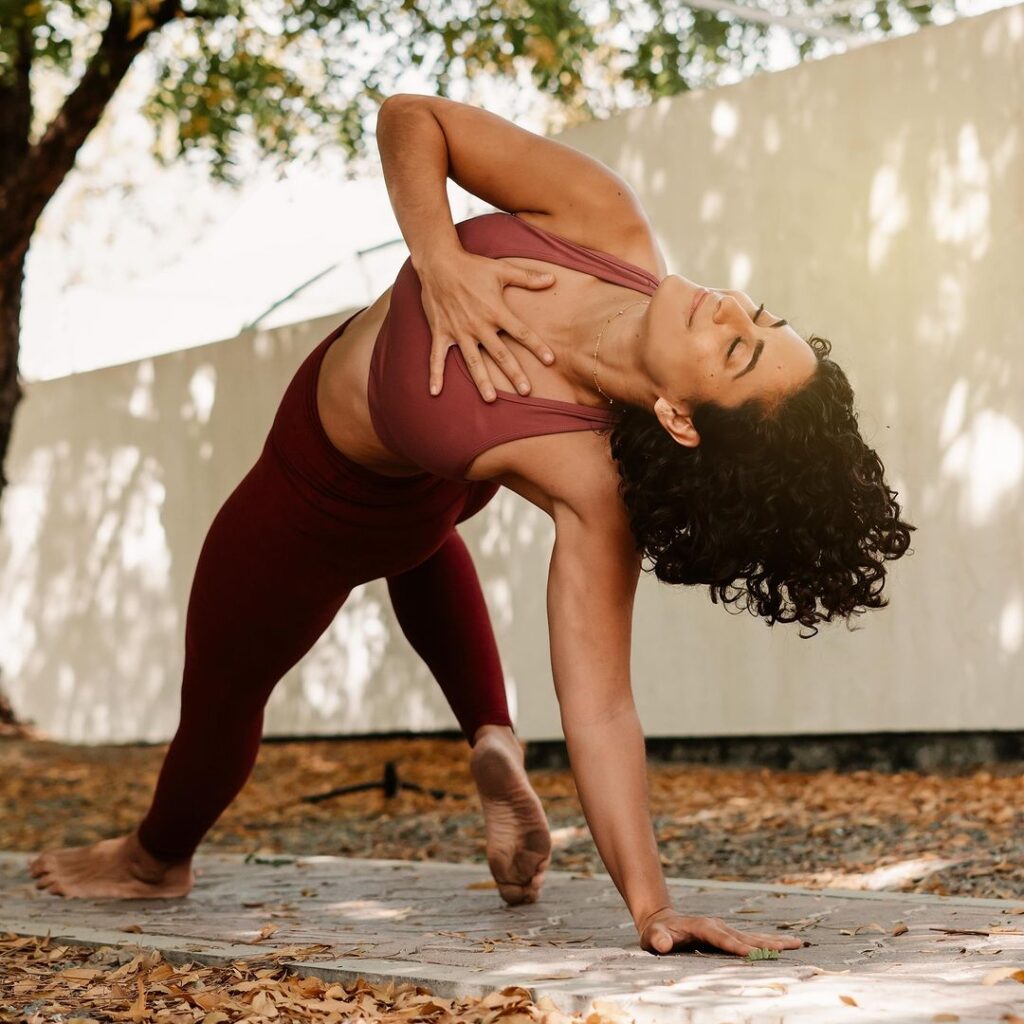
Balancing Wellness and Advocacy
In a time where wellness trends are often stripped of their roots, made palatable and apolitical, Dina calls for a return to authenticity. Her vision is for wellness practitioners to recognize their potential influence in the political landscape. She encourages them to stand alongside those who are fighting for human rights, to not turn away in moments of discomfort but to embrace wellness as an act of humanity. This, Dina believes, is the true essence of wellness: a responsibility to uplift and to engage.
“True wellness isn’t about quick fixes or glossy imagery,” she asserts. “It’s about community, truth, and a shared vision of well-being that spans beyond borders.”
How do you navigate tough conversation alongside wellness in the industry?
I think that especially in the wellness space, there’s a tendency for people to want to keep tough conversations out of the space, to not think about the bad things that are happening so that we can offer one hour of peace, within this very sacred space where all can disconnect.
But, what I do and I know what other facilitators do, is try to remind people that the teachings of yoga or the teachings of the Buddha is is to remember our connectedness to one another – even the word yoga means to yoke – bringing the sense of union with the Divine, but in that the process is recognizing that the Divine is within every single thing. We are not separate from that.
Unfortunately, the spiritual world, as it’s become more commercialised, becomes more westernised, and as it’s become more commodified, that unfortunately, it is encouraging people to have a much more narrow window of tolerance i.e. ‘protect your space, protect your zen, and protect your energy.’ And while those are really important, I believe, it’s just gone too far. Now people are completely protecting themselves and completely narrowing themselves, they’re not willing to bring themselves towards the awareness of what is truly real, the things that are happening now.
